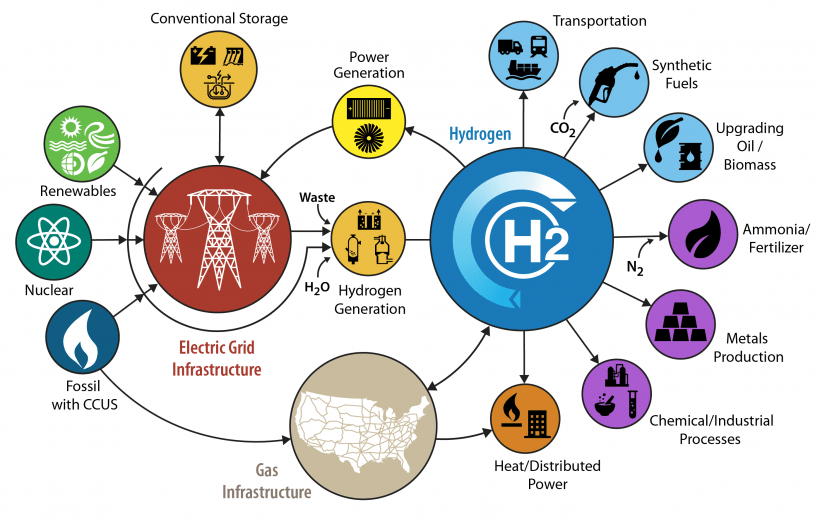
Welcome to the Hydrogen Grand Challenge: Michigan Hydrogen Horizon! This annual prize competition, organized by MI Hydrogen and sponsored by Fortescue, seeks to accelerate the adoption of hydrogen as a clean and sustainable energy carrier.
The Hydrogen Grand Challenge: Michigan Hydrogen Horizon is more than just a competition—it’s an opportunity to contribute to the equitable, affordable, clean, and secure energy transition. By focusing on hydrogen, a versatile and promising energy carrier, this challenge empowers students to explore solutions that can drive decarbonization in various industries. Your ideas could be the next big leap toward a sustainable future.
Why Hydrogen?
Hydrogen stands as a pivotal energy carrier, positioned to significantly curtail carbon emissions across domains such as heavy-duty transportation, aviation, heating, and distributed power, as well as pivotal industrial sectors like steelmaking, glassmaking, and semiconductor manufacturing.
The possibility of hydrogen acting as a clean and cost-effective energy transporter has gained substantial traction at the national level. This enthusiasm has been underscored by the U.S. Department of Energy’s announcement of $7 billion in funding to launch seven Regional Clean Hydrogen Hubs (H2Hubs), including the Midwest Alliance for Clean Hydrogen (MachH2) which is supported by MI Hydrogen. These hubs are strategically devised to expedite the widespread adoption of hydrogen throughout the United States.

Why A Prize?
When Charles Lindbergh won the Orteig Prize in 1927 and became the first aviator to make a trans–Atlantic crossing, it defied what was thought possible for human transportation and transformed the aviation industry. Prize competitions accelerate progress towards ambitious goals by providing an incentive for innovators and investors to solve complex problems. Prizes particularly lend themselves to situations where there is no clear route to a solution, or there may be many different pathways for innovation. They can produce breakthroughs even when there is no developed market for solutions and prompt the development of whole new industries.